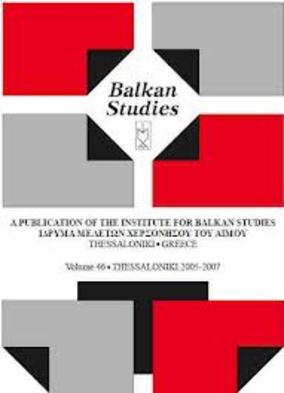La Grece et son droit legitime de militariser Lemnos et Samothrace : Un probleme artificiel a la lumiere de nouveaux temoignages historiques
Part of : Balkan studies : biannual publication of the Institute for Balkan Studies ; Vol.26, No.2, 1985, pages 415-429
Issue:
Pages:
415-429
Parallel Title:
Greece and its legitimate right to militarise Lemnos and Samothrace : An artificial problem in the light of new historical evidence
Section Title:
Articles
Author:
Abstract:
The hitherto unknown evidence drawn from the PRO’s British archiveshelp to shed more light on the wishes of the parties most immediatelyconcerned in the Montreux Convention, notably Turkey, Great Britain,and Greece.The conclusions to be drawn from this evidence may be summarised inthe following four main points:(i) In its intention to abolish the process of demilitarisation set in trainby the Lausanne Convention on the Straits, Turkey had basically aimed toreplace it with a new convention which would make no reference to any suchrestrictive regime. More specifically, Turkey had persistently sought the suppressionof the Lausanne clauses relating to this regulation, and most notablyarticle 4, which also concerned the Greek islands.(ii) The Turkish government had officially acknowledged, in its reportof 11 June 1936 to the British and the French governments, that theGreek islands were included within the Straits zone that had been exemptedfrom demilitarisation.(iii) In the same report, the Ankara government specifically linked therearmament ot the Greek islands with the measures designed to strengthenthe security of its own country.(iv) The official representatives of Great Britain, whose positive attitudehad largely determined the course of the negotiations undertaken with a viewto revising the Lausanne Convention, decisively came out, in all circumstances,in favour of Greece’s legitimate right to refortify the two islands.
Subject:
Subject (LC):




